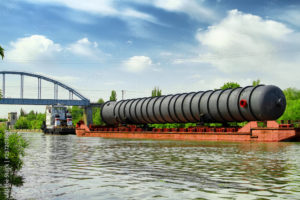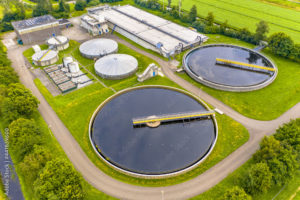Indonesia has emerged as a powerhouse in the global smelting market, riding the nickel wave with a dominance that cannot be ignored. With its abundant reserves and favorable investment climate, Indonesia has positioned itself as a leader in the production and export of nickel, a vital ingredient in stainless steel and electric vehicle batteries.
This article delves into the factors that have propelled Indonesia to the top of the smelting industry, examining the government’s strategic policies, supportive infrastructure, and partnerships with international players. We explore the country’s competitive advantages, including low production costs, large-scale operations, and access to high-quality ores. Additionally, we analyze the environmental and social issues associated with nickel smelting and how Indonesia is addressing them.
As the demand for sustainable materials and clean energy solutions continues to grow, Indonesia’s dominance in the global smelting market presents both opportunities and challenges. Join us as we unravel the intricacies of Indonesia’s rise and its impact on the world economy, sustainability efforts, and the future of the smelting industry.
Factors contributing to Indonesia’s success in smelting
Nickel, a versatile metal used in various industries, has experienced a significant surge in demand due to its crucial role in stainless steel production and the rising popularity of electric vehicles. This “nickel wave” has created a unique opportunity for countries with substantial nickel reserves to capitalize on the global smelting market.
Indonesia, blessed with vast nickel deposits, has been able to leverage this wave to establish itself as a dominant player in the smelting industry. The country’s strategic location and favorable investment climate have attracted foreign investors and enabled Indonesia to expand its production and export capabilities.
Overview of Indonesia’s nickel reserves and production capacity
Indonesia’s success in the smelting industry can be attributed to a combination of factors that have created a favorable environment for growth. One of the key factors is the government’s strategic policies, which have aimed to promote the development of the smelting sector by providing incentives and support to investors.
Additionally, Indonesia’s extensive infrastructure, including ports and power plants, has played a crucial role in facilitating the transportation of raw materials and finished products. The government’s investment in infrastructure development has not only benefited the smelting industry but also improved overall connectivity within the country.
Furthermore, Indonesia’s partnerships with international players have contributed to its success. Collaborations with global mining and smelting companies have enabled Indonesia to access advanced technology and expertise, enhancing the efficiency and productivity of its smelting operations.
The role of government policies in supporting Indonesia’s smelting industry
Indonesia boasts significant nickel reserves, making it an attractive destination for investors seeking to establish smelting operations. The country’s nickel reserves are primarily concentrated in Sulawesi, Halmahera, and Papua, providing ample raw materials for the smelting industry.
In terms of production capacity, Indonesia has seen a remarkable increase in recent years. The government’s focus on promoting domestic processing of raw nickel ores has led to the establishment of several smelters across the country. These smelters have significantly expanded Indonesia’s production capacity, enabling the country to meet the growing demand for nickel products.
Challenges faced by Indonesia’s smelting sector
Indonesia’s government has implemented a range of policies designed to support and boost the smelting industry. One such policy is the ban on the export of raw nickel ore, which has encouraged domestic processing and smelting. This ban has not only added value to Indonesia’s nickel resources but has also created employment opportunities and increased revenue for the country.
To attract foreign investment, the government has also offered various incentives, such as tax breaks and streamlined permitting processes. These measures have attracted international players, leading to the establishment of joint ventures and the transfer of technology, further strengthening Indonesia’s smelting capabilities.
Opportunities for growth and innovation in Indonesia’s smelting market
Despite its success, Indonesia’s smelting industry faces several challenges that need to be addressed. One of the main challenges is the environmental impact of nickel smelting. The extraction and processing of nickel ores can have adverse effects on ecosystems and local communities if not properly managed. Indonesia is actively working towards implementing sustainable practices and minimizing the environmental footprint of the smelting industry.
Another challenge is the social impact of smelting operations. The presence of smelters can lead to displacement of communities and affect the livelihoods of local residents. Recognizing this, the Indonesian government is taking steps to ensure that the benefits of the smelting industry are shared equitably and that social issues are adequately addressed.
Key players in Indonesia’s smelting industry
Indonesia’s dominance in the global smelting market presents significant opportunities for further growth and innovation. With the increasing demand for sustainable materials and clean energy solutions, the smelting industry is poised for continued expansion.
To capitalize on these opportunities, Indonesia can focus on developing more advanced and efficient smelting technologies. Research and development in areas such as energy efficiency and waste management can help Indonesia maintain its competitive edge and establish itself as a global leader in sustainable smelting practices.
Future outlook for Indonesia’s dominance in the global smelting market
Indonesia’s smelting industry has attracted the attention of both local and international players. Global mining and smelting companies have formed partnerships with Indonesian counterparts to leverage the country’s nickel resources and benefit from its favorable investment climate.
Some of the key players in Indonesia’s smelting industry include PT Vale Indonesia Tbk, which operates one of the largest nickel smelters in the country, and PT Aneka Tambang Tbk, a state-owned mining and smelting company. These companies, along with other local and international players, contribute significantly to Indonesia’s dominance in the global smelting market.
Conclusion: The continued rise of Indonesia’s smelting industry and its global impact
Indonesia’s position as a dominant player in the global smelting market is expected to continue in the coming years. The country’s abundant nickel reserves, supportive government policies, and strategic partnerships provide a solid foundation for sustained growth.
As the demand for sustainable materials and clean energy solutions increases, Indonesia’s smelting industry is well-positioned to benefit from this global trend. By addressing environmental and social issues, investing in research and development, and fostering collaboration, Indonesia can maintain its leadership position and contribute to a more sustainable and prosperous future for the smelting industry.








